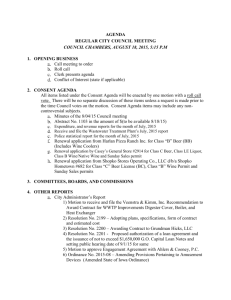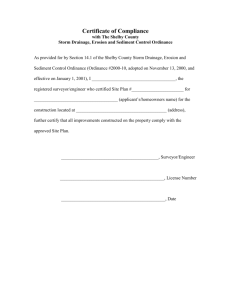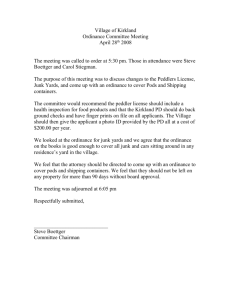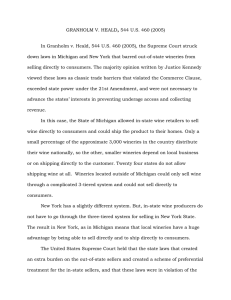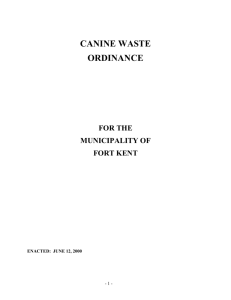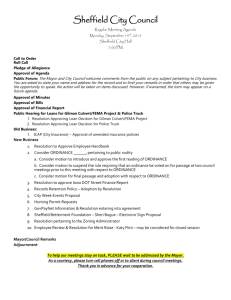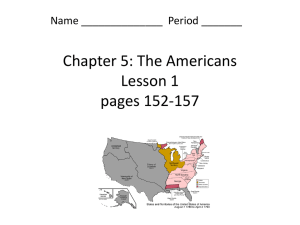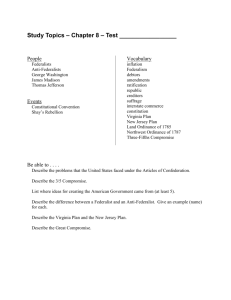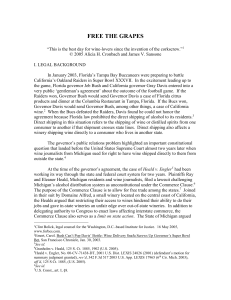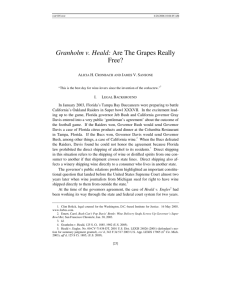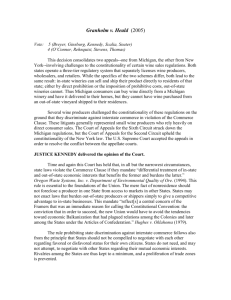Constitutional Principles
advertisement
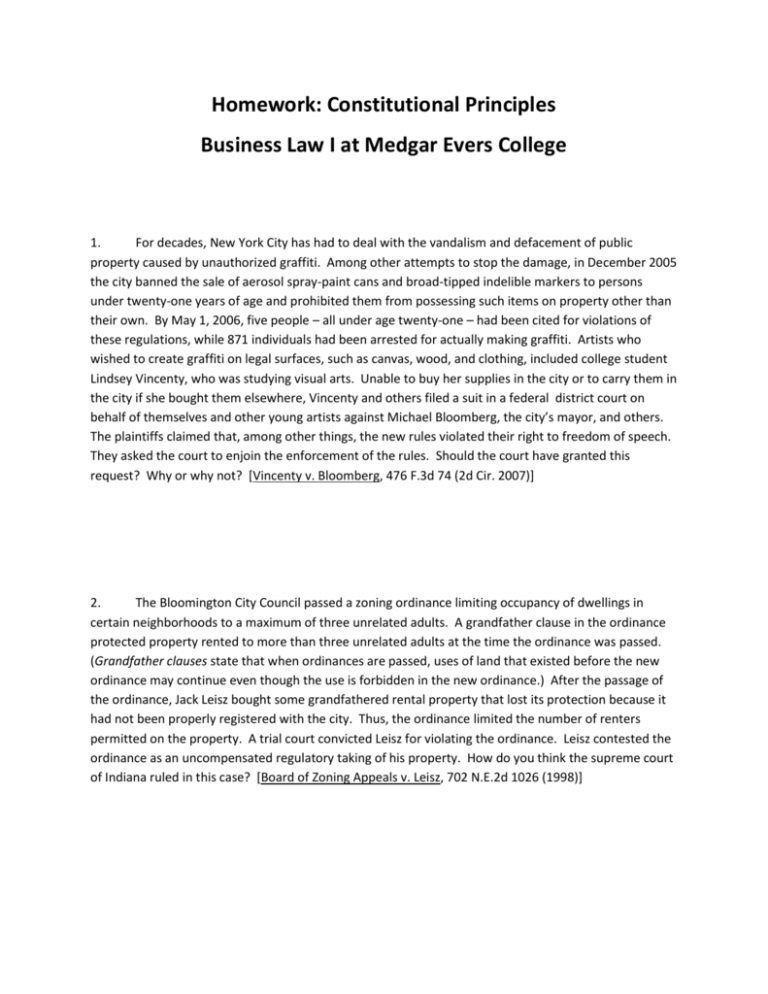
Homework: Constitutional Principles Business Law I at Medgar Evers College 1. For decades, New York City has had to deal with the vandalism and defacement of public property caused by unauthorized graffiti. Among other attempts to stop the damage, in December 2005 the city banned the sale of aerosol spray-paint cans and broad-tipped indelible markers to persons under twenty-one years of age and prohibited them from possessing such items on property other than their own. By May 1, 2006, five people – all under age twenty-one – had been cited for violations of these regulations, while 871 individuals had been arrested for actually making graffiti. Artists who wished to create graffiti on legal surfaces, such as canvas, wood, and clothing, included college student Lindsey Vincenty, who was studying visual arts. Unable to buy her supplies in the city or to carry them in the city if she bought them elsewhere, Vincenty and others filed a suit in a federal district court on behalf of themselves and other young artists against Michael Bloomberg, the city’s mayor, and others. The plaintiffs claimed that, among other things, the new rules violated their right to freedom of speech. They asked the court to enjoin the enforcement of the rules. Should the court have granted this request? Why or why not? [Vincenty v. Bloomberg, 476 F.3d 74 (2d Cir. 2007)] 2. The Bloomington City Council passed a zoning ordinance limiting occupancy of dwellings in certain neighborhoods to a maximum of three unrelated adults. A grandfather clause in the ordinance protected property rented to more than three unrelated adults at the time the ordinance was passed. (Grandfather clauses state that when ordinances are passed, uses of land that existed before the new ordinance may continue even though the use is forbidden in the new ordinance.) After the passage of the ordinance, Jack Leisz bought some grandfathered rental property that lost its protection because it had not been properly registered with the city. Thus, the ordinance limited the number of renters permitted on the property. A trial court convicted Leisz for violating the ordinance. Leisz contested the ordinance as an uncompensated regulatory taking of his property. How do you think the supreme court of Indiana ruled in this case? [Board of Zoning Appeals v. Leisz, 702 N.E.2d 1026 (1998)] 3. Michigan and New York passed state statutes allowing in-state, but not out-of-state, wineries to sell wine directly to state residents. The statutes permitted out-of-state wine wholesalers, on the other hands, to sell to state residents. Thus, out-of-state wineries wishing to sell wine to Michigan and New York residents had to sell through a wholesaler. Because many small wineries produce insufficient quantities of wine to sell via wholesaler, however, the statutes effectively prohibited them from selling to Michigan and New York residents. Michigan residents and an out-of-state winery challenged the statutes as violating the commerce clause of the U.S. Constitution. Michigan and New York argued that the Twenty-First Amendment protected the statutes. The Twenty-First Amendment states that “[t]he transportation or importation [of intoxicating liquors] into any state…for delivery or use therein, in violation of the laws thereof, is…prohibited.” Moreover, the states argued that the statutes advanced legitimate public purposes: curbing wine sales to minors via the Internet, stemming tax evasion on wine sales, protecting public health and safety, and ensuring regulatory accountability. The district court agreed with the states’ argument, but on appeal, the appellate court ruled that the statures violated the commerce clause. How do you think the Supreme Court ruled? [Granholm v. Heald, 125 S. Ct. 1885 (2005)]
